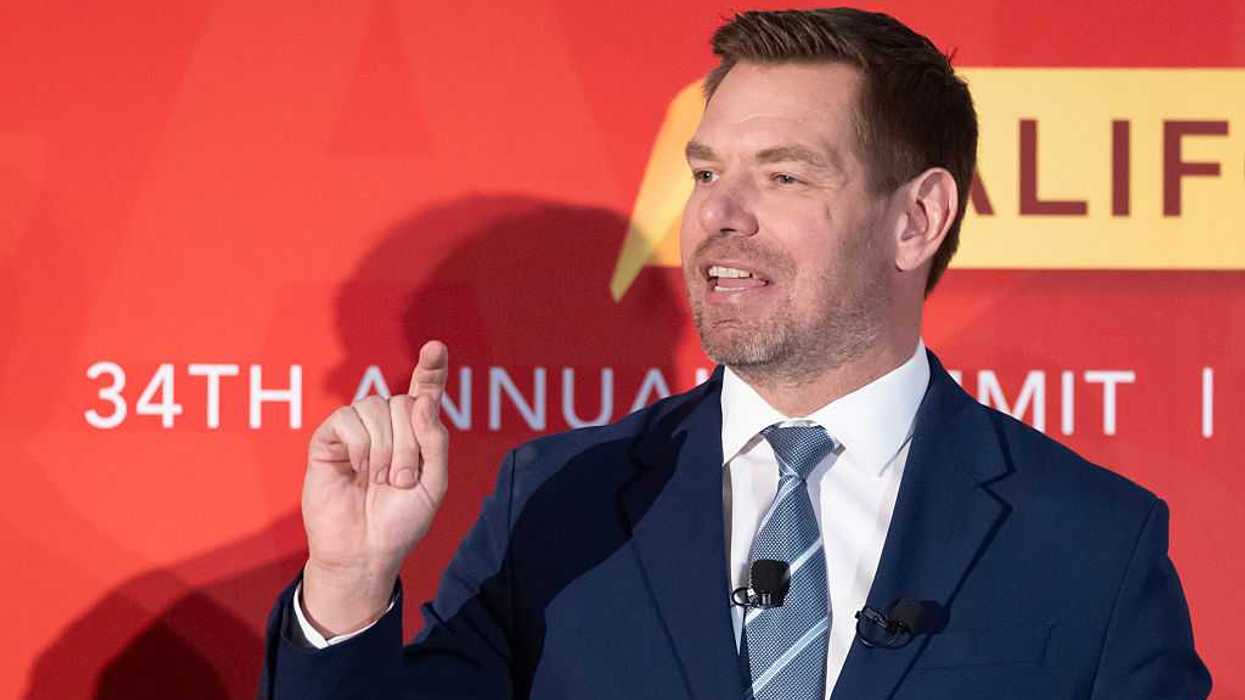Dr. Ezekiel J. Emanuel, a former Obama administration health policy adviser and the brother of Chicago Mayor Rahm Emanuel, said in a recent op-ed that 75 is the ideal age to die, claiming that "living too long" can often lead to a "deprived" state — one that sometimes causes people to be remembered as "feeble, ineffectual, even pathetic."
Emanuel, who left the policy role in 2011 and who now directs the Clinical Bioethics Department at the U.S. National Institutes of Health, said that, while death is certainly a loss, living too long also has some major pitfalls, sharing his views in an Atlantic article titled, "Why I Hope to Die at 75."
"But here is a simple truth that many of us seem to resist: living too long is also a loss. It renders many of us, if not disabled, then faltering and declining, a state that may not be worse than death but is nonetheless deprived," Emanuel wrote. "It robs us of our creativity and ability to contribute to work, society, the world. It transforms how people experience us, relate to us, and, most important, remember us. We are no longer remembered as vibrant and engaged but as feeble, ineffectual, even pathetic."
Emanuel, who is a doctor and a bioethicist, argued in the article that there's a cultural dynamic unique to the U.S. that is known as "American immortal" — an obsession with taking vitamins, doing memory-building puzzles and living on strict diets, all in an effort to prolong one's existence.
The former policy adviser, who rejects this ideology, explained that, though he most certainly isn't advocating purposefully ending one's life at 75, he simply believes it is the age before most individuals begin to lose their mental and physical faculties.
Commenting on societal trends, he said that, over time, life expectancy has risen, ushering in not only longer lives, but also more extended periods of time during which elderly people struggle, remain less creative and experience the pitfalls of older age.
While expectancy stood at just 47 years in 1900, it rose to 69.7 in 1960 and is currently at 79 years.
Emanuel also addressed the social aspects that come along with an increase in longevity. Longer lives mean that children end up caring for their parents for extended periods of time, possibly creating some social and familial issues in the process.
"Living parents also occupy the role of head of the family. They make it hard for grown children to become the patriarch or matriarch. When parents routinely live to 95, children must caretake into their own retirement," Emanuel wrote. "That doesn’t leave them much time on their own — and it is all old age. When parents live to 75, children have had the joys of a rich relationship with their parents, but also have enough time for their own lives, out of their parents’ shadows."
 FILE - This March 11, 2009 file photo shows Dr. Ezekiel Emanuel speaking at the American Medical Association's annual conference in Washington. (AP Photo/J. Scott Applewhite, File)
FILE - This March 11, 2009 file photo shows Dr. Ezekiel Emanuel speaking at the American Medical Association's annual conference in Washington. (AP Photo/J. Scott Applewhite, File)
As for his own health, Emanuel, 57, said he plans to stop taking major efforts to prolong it once he inches toward the 75 mark.
At 65, he said he'll stop having colonoscopies and, at 75, he said he will refuse treatment if he falls ill with cancer; he'll also stop having stress tests, will refuse pacemakers, won't have reparative heart surgery — and will even stop taking antibiotics.
"At 75 and beyond, I will need a good reason to even visit the doctor and take any medical test or treatment, no matter how routine and painless," he said. "And that good reason is not 'It will prolong your life.'"
Emanuel, a well-respected doctor whose views on health and patient care have been scrutinized by some critics, was careful to note that he isn't judging those who wish to live as long as possible and that he, as a physical, has regularly helped the elderly find resources that enable them to do so.
Read all of his arguments here.

 FILE - This March 11, 2009 file photo shows Dr. Ezekiel Emanuel speaking at the American Medical Association's annual conference in Washington. (AP Photo/J. Scott Applewhite, File)
FILE - This March 11, 2009 file photo shows Dr. Ezekiel Emanuel speaking at the American Medical Association's annual conference in Washington. (AP Photo/J. Scott Applewhite, File)






